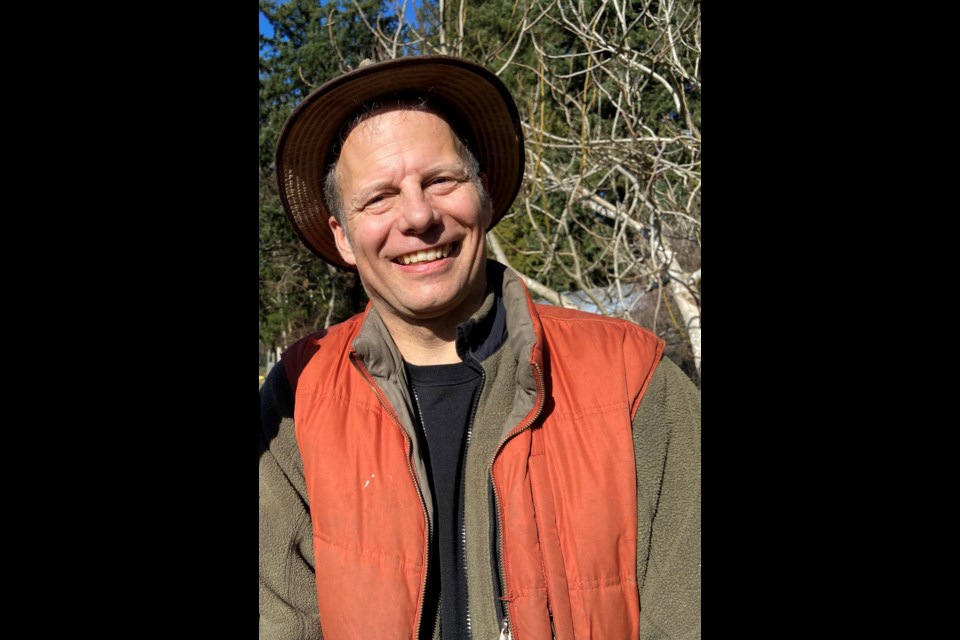The knowledge and skills to grow and cultivate food is something humans have developed for more than 10,000 years.
“That’s why we have been successful as a species,” said master gardener Ron Berezan.
As an organic farmer for over 30 years and a permaculture practitioner for more than 15 years, Berezan thinks there is not only something special about growing your own food, but just having access to farm-grown food can be grounding.
“For me it’s a sense of place when you eat food that is grown either by yourself or someone locally; you are connecting to where you are, as opposed to an abstraction,” said Berezan. “Food that comes from a real place, whether that’s your garden or someone you know, [family or a local grower], that results in a feeling of being much more connected, and it’s good for mental health.”
He doesn’t want to romanticize farming or gardening though.
“Gardening and farming has its setbacks and disappointments,” added Berezan.
Although the qathet region is an ideal place to grow food, the past few years have been different, due to heat waves and an extended winter last year.
“It’s the unpredictability that is the challenge; we can deal with heat and cold but when you don’t know when it’s coming, that’s hard,” stressed Berezan. “Last year, for example, spring didn’t really end until mid-June and we didn’t get any warmth until then.
“We put out hundreds of seedlings that were doing nothing and getting eaten by slugs.”
However, he says there are always ways to adapt and opportunities to grow even in small spaces.
“Everybody has some space; it could be a patio, deck or balcony, there is always room to grow a little food,” said Berezan. “That’s important for everyone to do, it doesn’t matter what scale.
“I would add that connecting with people who are gardening around you, whether that’s farmers’ markets or local farmers, is important.”
There is also another way to grow that isn’t as labour intensive as the traditional vegetable garden: a food forest is a perennial food system, in other words, the plants return year after year.
“We can put collections of plants together in a way that mimics a forest; that would include a higher overstory, a mid-story and then lower plants,” said Berezan. “For example, one could plant fruit and nut trees, berry bushes and perennial herbs such as mint, lemon balm, oregano, salad greens, or ground cover, like strawberry.
“Plants that cooperate well together can create a longer-term, stable system that has all kinds of different harvests in it.”
This kind of growing is not only great for birds and pollinators but “a perennial food forest can be used for carbon sequestration,” added Berezan.
Carbon sequestration is a way of capturing and storing atmospheric carbon dioxide, which could mitigate climate change.
With food costs going up, growing food could save a person money, but the food also has more nutrients and taste than say, a carrot bought at a big chain supermarket.
“The thing is, the food you grow yourself or buy from a local producer is of a very different type of quality than when you buy it from a [global conglomerate] store,” said Berezan. “From the time of harvest, produce loses its nutritional value, over time, fairly dramatically actually; the first three days can be critical,” he added. “When you develop a skill and become efficient at it and receive a good return on the hours you put in, it’s worth the time and labour.
“There is something mysterious seeing a tomato plant growing from a tiny seed into [by mid-August] a huge plant with lots of fruits.”
Growing charts can be found at garden nurseries, to keep track of what to grow and when.
“Don’t start things too soon, they get too big in containers, and could get stunted, hold off till it gets a bit warmer,” warned Berezan. “It’s about knowing the schedule of when to plant; onions, beets, kale and chard can handle cold weather well, but if you try squash right now, or zucchini, it will just suffer.”
Berezan is happy that the qathet community has a vibrant community of food growers.
“Without a doubt there’s lots of exchange of information, exchange of surplus, knowledge, seeds and crops,” he said. “There is a healthy environment for that here.”




